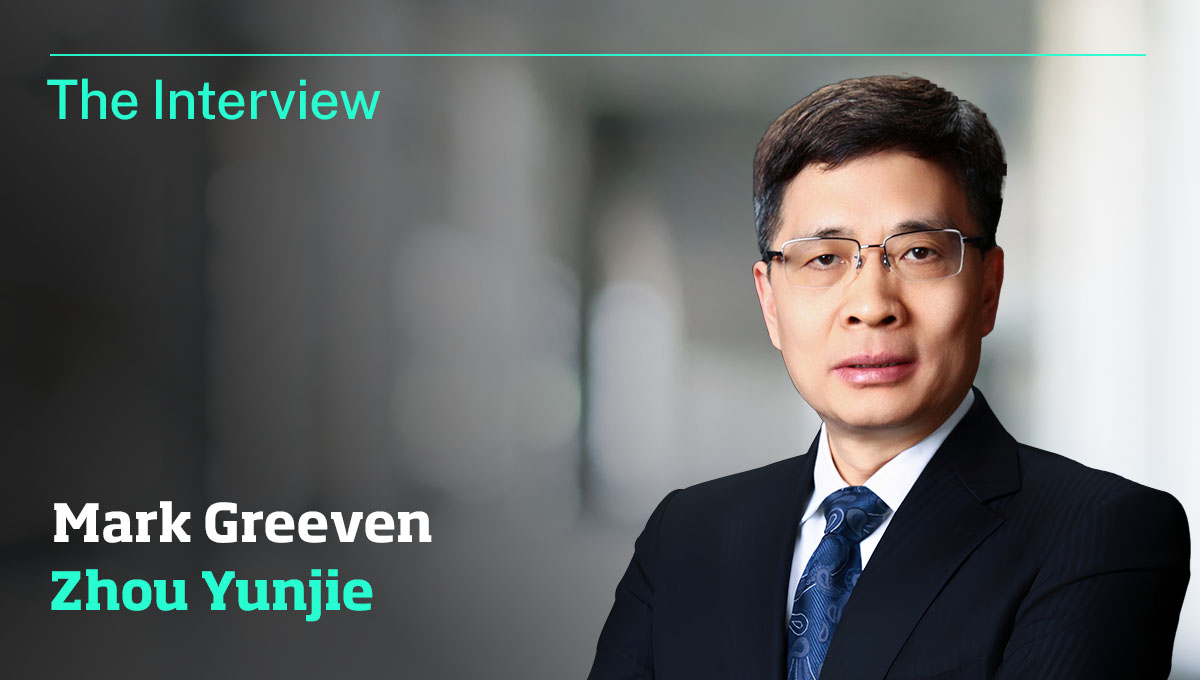
A history lesson (from year one) for Trump and the Brexit crowd: Isolationism has never worked!
From Trump’s wall and immigrant ban, to Britain pulling away from its longtime partners, the tendency toward isolationist policies is on the rise in the west.
We’ve seen this before but it has never had the intended effect of making any country in question “great again”.
When Chinese admiral Zheng He returned to his country in 1424 after his impressive fleet vessels – of up to 120 meters in length – had navigated the world’s oceans, he was ordered by the new Emperor Hongxi to erase all traces of his expedition. Thus, began a long period of isolationism for China. In 1793, when Sir George McCartney led a British Embassy visit to Chinese Emperor Qianlong, he found a rich court, but a nation in disarray. This period of Chinese history was later described as the “Immobile Empire” in a book by French writer and politician Alain Peyrefitte.
Who made the greatest contribution to world prosperity? The magnificent Chinese fleet whose discoveries were discarded or the three insignificant ships of Christopher Columbus – each a mere 22 meters long – which a few years later opened the roads to new worlds? A British economist, Angus Maddison, has tried to shed some light on the subject and to explain the long-term economic development of nations since… year one.
At the time, China and many European countries had a relatively similar GDP per capita estimated at around USD $600. In 1300, Northern Italy became the richest region in the world with a GDP per capita of over USD $1,600. In 1600, the Netherlands reached first place with a GDP exceeding USD $2,650 per capita. By 1820, it was Great Britain’s turn to become the richest nation, thanks to its trading empire and the industrial revolution. For all of them, international trade and openness were fundamental to wealth creation.
In contrast, China, which had often experienced long periods of isolationism, didn’t reach the level of year one again until 1963. For almost 2,000 years, Chinese leaders had failed to increase the long term wealth of their population. Then in 1979, under the leadership of Deng Xiaoping, China reversed trends and initiated a new “Open Door” policy. The results have been staggering. Today, GDP per capita in China is over USD $8,000. And, to come back to where we started – shipping – China is now home to more than half of the world’s 50 largest ports and accounts for 39% of world shipping transactions.
It is an astonishing feat of history: China has understood the message of openness and trade at the very same time as the winners of yesterday – the United States of America, Britain, and perhaps soon France and the Netherlands – believe that they will regain prosperity by withdrawing from the global community.
Of course, one should not underestimate the ugly side of globalization either. According to the OECD, 70% of middle-class households in wealthier nations have not seen any growth in their revenues over the past ten years. In the United States, revenue stagnation affects 80% of these households and almost 100% in Italy. Such a trend deserves to be addressed and corrected, but not with the protectionist approach suggested by many of today’s populist movements, which have historically failed.
Why do openness and trade create prosperity? Fundamentally, because in an open world with free trade people on the other side of the border, the enemies of past wars, have more economic value alive than dead. The day that China overturned a strategy of confrontation and revolution for one of openness and trade, it became a prosperous and powerful nation.
Victor Hugo expressed the same idea during his memorable speech at the Peace Congress of 1849 in Paris. His words are now inscribed on the monument that commemorates the battle of Waterloo: “The day will come when there will be no other battlefields than markets opening to trade and minds opening to ideas”. What a tragedy that so many government leaders today seem to have forgotten the lessons of history!
Stéphane Garelli is a world authority on competitiveness and has pioneered research in this field. He is Professor Emeritus at IMD where he founded the World Competitiveness Center.
Research Information & Knowledge Hub for additional information on IMD publications

China’s apparel sector in 2025 sees local brands rise and global players adapt amid digital, Research & Development, and innovation-led growth.

Explore how innovation, R&D, and policy reforms are reshaping China’s pharmaceutical sector amid rising healthcare demand and demographic shifts.

Stay ahead in a shifting global economy. Learn how to build resilient supply chains, manage currency risks, and adapt strategies for long-term business success.
It's a reversal of the situation: Chinese automaker BYD is offering to collaborate with former electric car pioneer Tesla. From drones to livestream trading to artificial intelligence: China is often ahead of the West.

Haier's CEO Zhou Yunjie explains how the company's innovative RenDanHeYi model empowers employees, drives global growth, and adapts to market changes.
On 12 March 2025, new and expanded tariffs on aluminium, steel, and downstream “derivative” products come into force. This briefing shows that derivative products alone represented $151 billion of imports in 2024, with 27 foreign economies each ha...
Trade conflict is costly to all parties. Canadian and Mexican trade retaliation can deny tariff-related wins for American workers. Blunt retaliation could go so far as to eliminate all the take-home pay gains in 40 U.S. states and make whatever ga...
This paper presents a compact and intuitive framework that consolidates, simplifies, and extends results on the links between technology, trade, and labour market outcomes. It makes three main contributions. First, it presents closed-form solution...
The board of Nestlé S.A. announced that Anna Mohl would become the CEO of Nestlé Health Science (NHSc) — a global leader in nutritional science — on 1 January 2024. She was delighted to hear about her new position but knew there was little time to...
The Trump administration’s recent tariff threats have increased uncertainty over the business model of Temu and other large ecommerce groups. The White House reversed its initial closure in 2025 of a loophole that allowed low-value parcels shipped...
Research Information & Knowledge Hub for additional information on IMD publications
Research Information & Knowledge Hub for additional information on IMD publications
Research Information & Knowledge Hub for additional information on IMD publications
Research Information & Knowledge Hub for additional information on IMD publications
Research Information & Knowledge Hub for additional information on IMD publications
Global Trade Alert, Zeitgeist Series Briefing no. 57, 6 March 2025
Research Information & Knowledge Hub for additional information on IMD publications
3 March 2025, Global Trade Alert Report, cBrief 5: These Are Your People
Research Information & Knowledge Hub for additional information on IMD publications
in Journal of International Economics 23 February 2025, ePub before print, 104065, https://doi.org/10.1016/j.jinteco.2025.104065
Research Information & Knowledge Hub for additional information on IMD publications
Case reference: IMD-7-2636 ©2025
Research Information & Knowledge Hub for additional information on IMD publications
Research Information & Knowledge Hub for additional information on IMD publications

